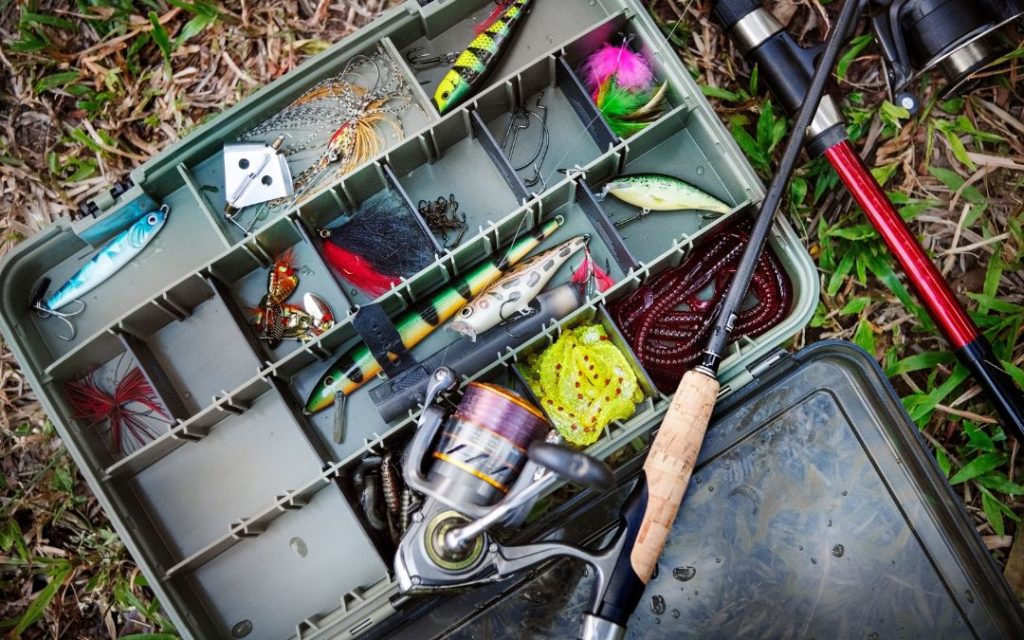Proper storage of fishing equipment is crucial to maintain its functionality and longevity. Here are some tips for storing fishing equipment safely:
- Clean and Dry Before Storage:
- Rinse Gear Thoroughly: After each fishing trip, rinse your rods, reels, lures, and other equipment with freshwater to remove salt, sand, or debris.
- Dry Completely: Ensure that all equipment is thoroughly dry before storing. Moisture can lead to corrosion, mold, and mildew.
- Use Rod and Reel Covers:
- Rod Covers: Protect fishing rods from scratches, dings, and other damage by using rod covers or sleeves. This is especially important for transporting rods.
- Reel Covers: Consider using neoprene or padded reel covers to protect reels from dust and impacts.
- Organize and Store in a Cool, Dry Place:
- Tackle Organization: Invest in a tackle box or storage system to keep hooks, lures, and other small items organized. This makes it easier to find what you need and prevents tangles.
- Rod Racks: Store fishing rods on vertical or horizontal racks to prevent warping. Avoid leaning rods against walls or leaving them on the ground.
- Temperature Considerations: Store equipment in a cool, dry place to prevent damage from extreme temperatures. Avoid leaving gear in direct sunlight or in places where temperatures fluctuate drastically.
- Check and Maintain Regularly:
- Inspect for Damage: Regularly inspect rods, reels, lines, and other gear for any signs of damage. Replace or repair any compromised components promptly.
- Reel Maintenance: Follow manufacturer guidelines for reel maintenance. Clean and lubricate reels as needed to ensure smooth operation.
- Check Fishing Line: Inspect and replace fishing line regularly, as it can weaken over time due to exposure to UV light and stress from catching fish.
- Secure Properly During Transportation:
- Use Rod Holders: When transporting rods, use rod holders on your vehicle or a protective rod case to prevent damage during transit.
- Secure Tackle Boxes: Make sure tackle boxes are securely latched to prevent spills and keep small items organized.
- Cover and Protect: If transporting gear in an open truck bed or on a boat, use covers or tarps to protect equipment from the elements.
By following these tips, you can ensure that your fishing equipment remains in good condition, ready for your next fishing adventure. Proper storage practices not only protect your investment but also contribute to a more enjoyable and successful fishing experience.

